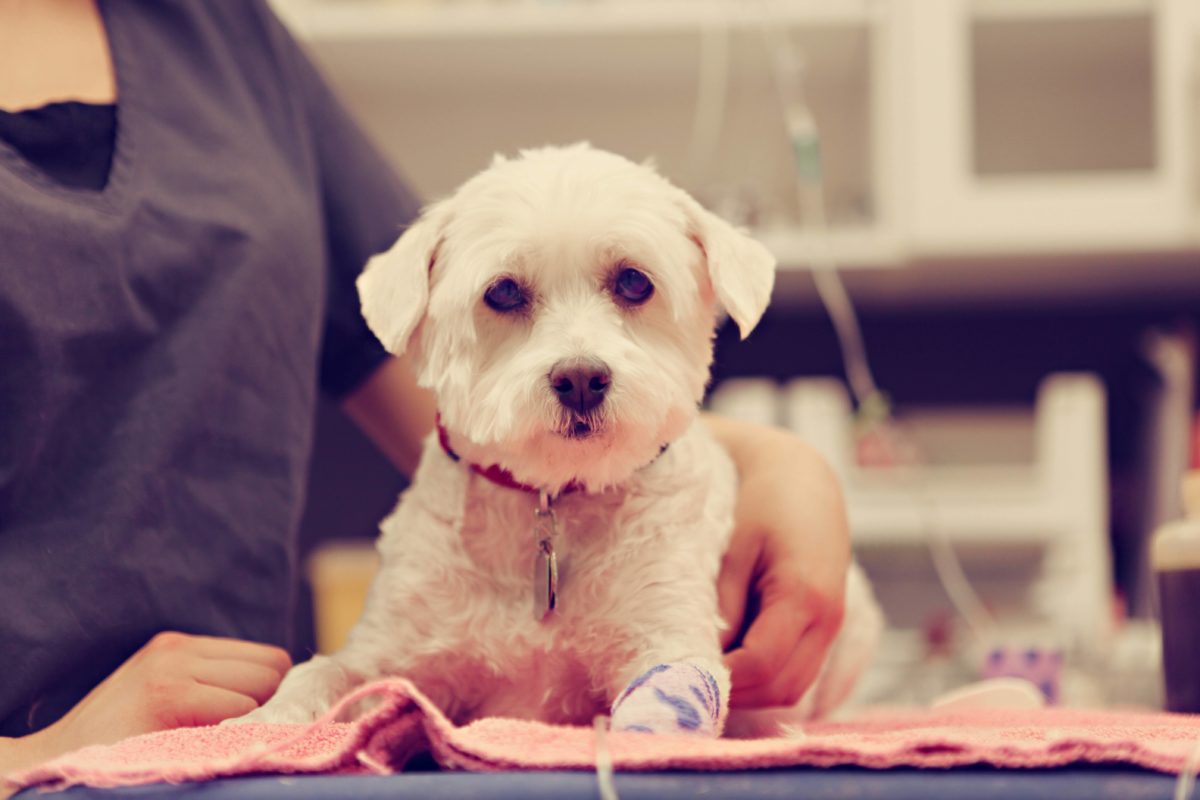It is commonplace for veterinary clinics to recommend, or even require, pre-anasthetic blood work for their young and healthy patients. Owners are often told that doing pre-anaesthetic blood work (PABW) may detect underlying illnesses that would contraindicate surgery and anesthesia and/or require an adjustment to the anesthetic protocol (meaning, a change in the medications that are used for the anesthetic). When it comes to medical screening tests, tests are only useful if they screen, that is, if they exclude the healthy and if the information that they provide is actionable and relevant. The doctors at the Renforth Vet Clinic do not believe that pre-anesthetic blood tests meet this criteria.
A 2008 Study conducted at the University of Leipzig to determine if routine hematological and biochemical screening is of benefit in dogs requiring anesthesia found that, if no potential problems are identified in the patient’s history or physical exam, PABW is unlikely to yield additional information and did not prompt major changes to anesthetic techniqueDr. Nancy Brock, DVM, Board Certified AnesthesiologistA 2008 Study conducted at the University of Leipzig to determine if routine hematological and biochemical screening is of benefit in dogs requiring anesthesia found that, if no potential problems are identified in the patient’s history or physical exam, PABW is unlikely to yield additional information and did not prompt major changes to anesthetic technique
What clinics often do NOT tell owners about pre-anaesthetic blood screening:
1. PABW will not indicate whether or not your pet will have an adverse reaction to an anesthetic drug. The only way to know if an animal (or human being for that matter) will have an adverse reaction to an anesthetic medication, is to administer the medication. Fortunately these reactions are exceptionally rare. The risk of some kind of anesthetic complication is generally cited as 1 in 100,000 patients. The definition of “complication” ranges from minor reactions like a small swelling at the site of an injection to more serious reactions, even anaphylaxis and death. The truth is that your pet is at more risk accompanying you to the grocery store than he or she is to have an adverse reaction to an anesthetic drug.
2. The argument that PABW is routinely done in all human patients is, quite simply, false. To quote findings from a 2011 The argument that Pre-Anesthetic Blood Work is routinely done for young, healthy patients in human medicine is, put quite simply, false study investigating the value of pre-operative blood work in human medicine: “During the past few decades this practice has been a subject of close scrutiny due to low yield and high aggregate cost. Performing routine screening tests in patients who are otherwise healthy is invariably of little value in detecting disease and in changing the anesthetic management or outcome.
3. In some cases, these tests provide results that are, in effect, false positives that prompt further testing that is expensive, both in terms of financial cost to owners and stress to their pet. According to the abstract of the article referenced above “A large number of investigations which are costly to pursue often detect abnormalities of no clinical relevance, may be risky to patients and cause unnecessary delay or cancellation of surgery.”
4. Screening tests are only useful on at risk patients, which in this case, means patients exhibiting symptoms of disease. An approach of selective testing reduces cost without sacrificing safety or quality of anesthetic care.

